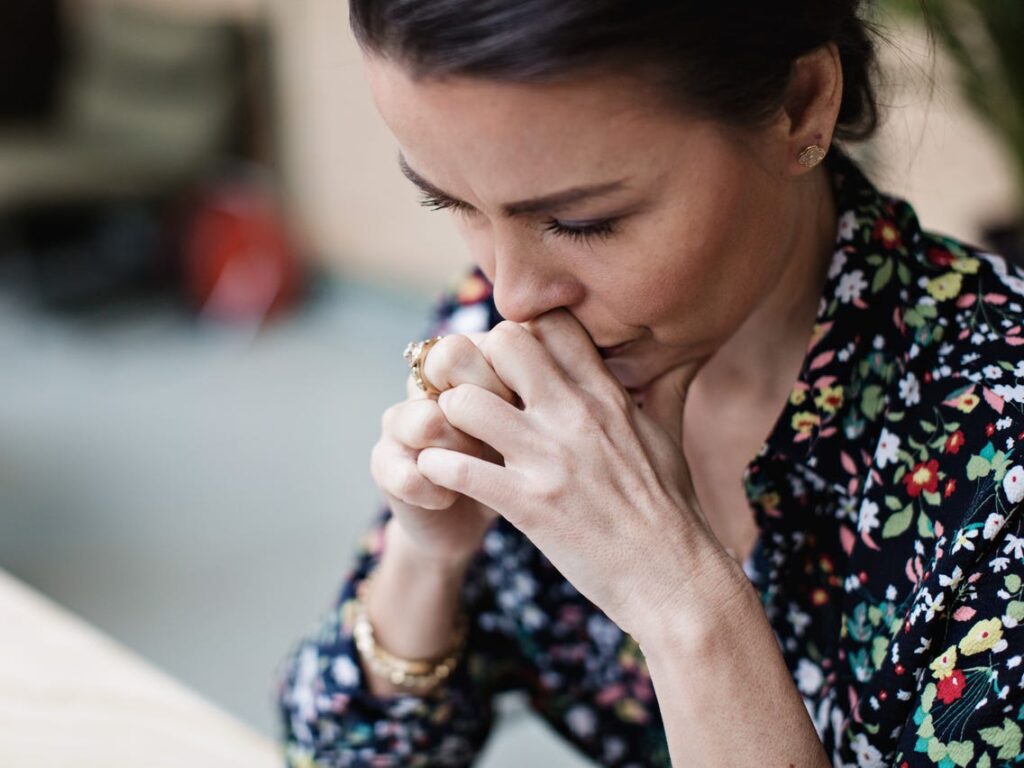Anxiety is a feeling which is associated with restlessness and discomfort. In simpler terms it is the immediate reflexive response of the body to stress. Some of the most common symptoms include heart rate increasing, sweaty hands, breathlessness, headache, etc. There are several ways to cope up with anxiety, but the first and foremost step is to understand what is triggering a person.
This is because the trigger points and experiences for everyone are completely different. Each person comes with a different set of experiences and situations that can result in intensive and prolonged discomfort.
How to identify the triggers?
The identification of the triggers can take time and some serious self-reflection. Nevertheless being patient and introspective will bring out results. Only when you can identify the triggers, it will lead to the step of ways to cope with it.
Below are some of the ways to cope with anxiety–
Anxiety can be occasional or long term in nature. In case your anxiety is occasional and hindering your concentration on tasks there are some quick ways to deal with it.
Also, if your anxiety generates around situations like being worried about some upcoming event or maybe a result then it’s symptoms will also be short-lived.
Here is what you need to do to deal with the seasonal nature of your anxiety-
1.Think deeply about your thought pattern
Negative thoughts can be a root cause of the brooding up your mind and intensify the situation. It is important to think positively and be calm during this time. One of the ways to deal with it is to counter-question your fears and think of a way to control them.
2. Using Aromatherapy
Scents like lavender, chamomile or even sandalwood can be very therapeutic in nature. It can soothe your mind, body, and soul. This could be in any form be it oil, incense, or a candle.
Aromatherapy can help to activate some receptors in the brain which can potentially ease up anxiety.
3. Practicing Deep and Centred Breathing
Try doing systematic breathing and following a repetitive series of exhales and inhales. Also, count your breaths so that you can feel a sense of control. By doing an evening out of your breathe, it can result in slowing the heart rate. This will in turn help you calm down.
4. Go out
Don’t be enclosed in those 4 walls of your room or stick to your house. Instead, go outside and breathe in the fresh air. The best way to stop recurring thoughts is to divert yourself into something. Doing yoga, mediation, or even walking for 15 minutes can be a mood changer!
5. Pen down your thoughts
There is no other way to release your thoughts and feel light other than penning them down on a piece of paper. That way not only will you feel light but you will also start to feel more aware of yourself as a whole.
The above tricks are known to work best for someone whose anxiety is occasional or someone who has GAD (Generalised Anxiety Disorder). The reason being they are generic and basic in terms of their nature and last for a short period.
On the other hand, Anxiety can be long-lasting too. If it becomes a regular part of your life, then it is really important to find a way to keep a regular tab on it. Some of the ways to deal with it apart from medications are talk therapy or meditation.
In case you are stuck up and need a ray of hope to kick start here are a few ways through which it can happen-
1.Adopt cognitive-behavioral therapy (CBT)
This therapy is a good way to start because it helps people learn the different ways of thinking and reacting to anxiety-causing situations.
This is crucial because a therapist can help you find out and develop the ways to change the negative thought patterns and behaviour even before they start budding.
2.Spot and learn to manage your triggers
As suggested identifying your triggers plays a key role in understanding anxiety as a whole. Nevertheless, along with you, the therapist can also help to spot those. But sometimes the triggers aren’t that obvious and need time to dive deep into.
It could be smoking, drinking alcohol or even a person, place, or situation. Whenever you figure out your trigger intentionally try to limit your exposure to it.
3. Do some form of exercise
Doing meditation, yoga, or walk can play an active role to ease and calm you down. Mindful meditation is highly recommended to bring the anxiety levels down and balance up the mind. But in case concentrating at a stretch is difficult for you, which it can be start with basic yoga or breathing.
4. Keep your body and mind healthy
Exercises, eating healthy and balanced diets as well as getting enough sleep are some of the best ways to wave off the anxiety symptoms. These are no doubt the best ways to cope up with it and also ensure you lead a healthy lifestyle.
5. Make sure to consult a doctor
It is a must to consult a doctor/practitioner time and again to keep a record of your anxiety. In case they believe that you will be needing medications to control your levels then go ahead with it.
Also, make sure to discuss all your concerns with the doctor.
These are some of the ways that can help to cope up with anxiety. Discover, spot and, identify what phase and level as well as the intensity of anxiety you are stuck up in and take action accordingly to deal/cope with it.





